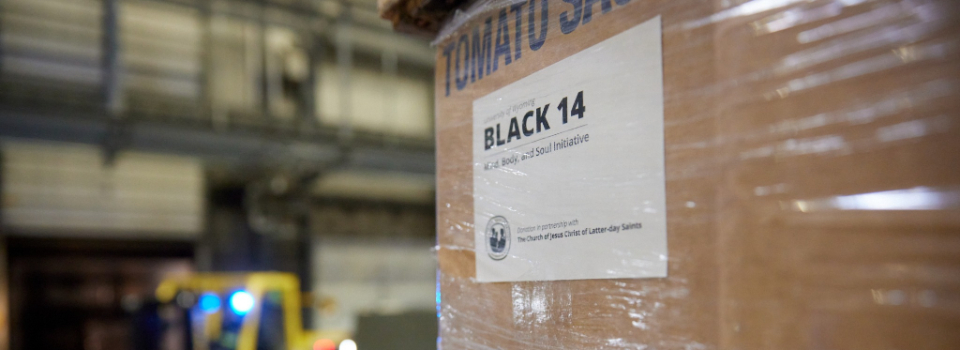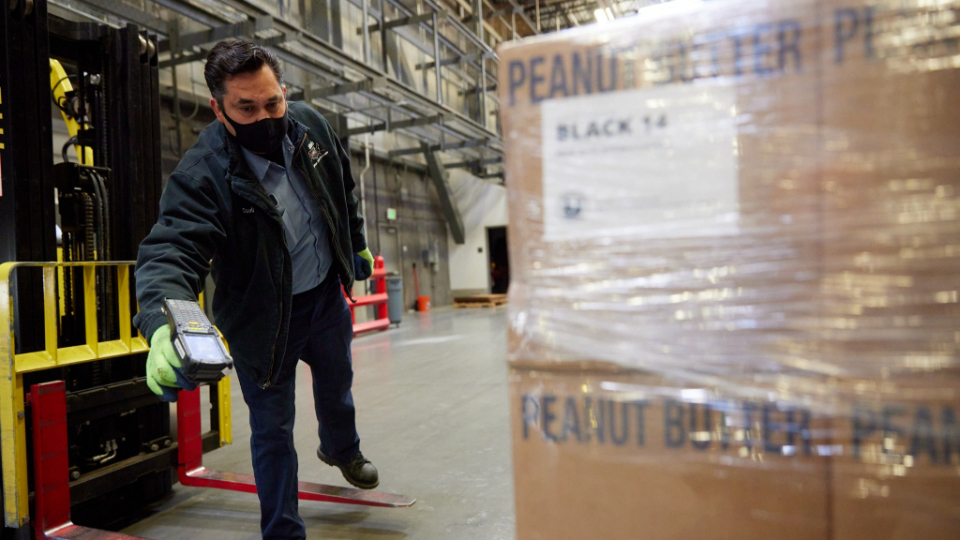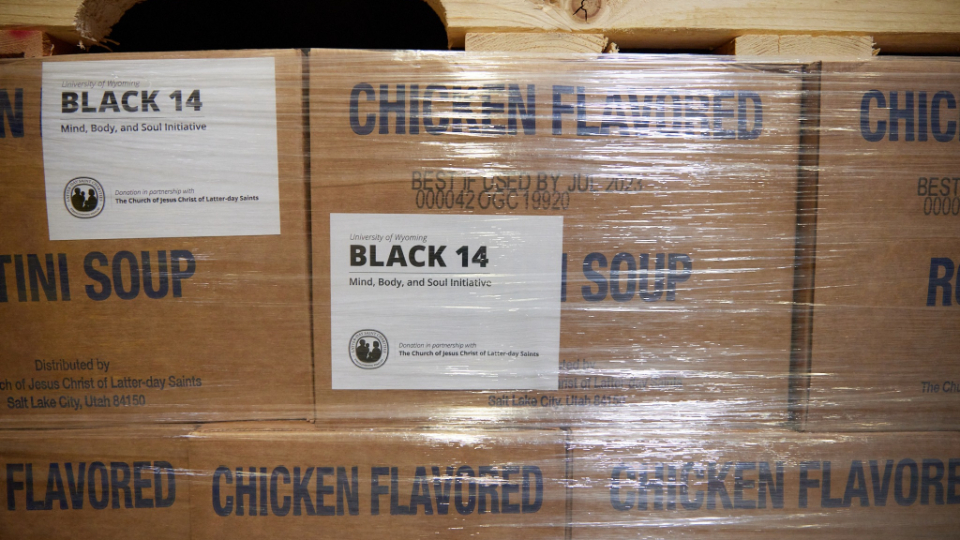
The first of nine nationwide donations was made in Laramie, Wyoming, where 14 Black football players first voiced concern about a race-based Church policy 51 years ago
Latter-day Saint Charities, the humanitarian arm of The Church of Jesus Christ of Latter-day Saints, is partnering with the Black 14 Philanthropy to bring 180 tons of food to nine cities throughout the United States to help people in need.
The first of several deliveries to be made between November 16 and November 20, 2020, took place November 16 at Cathedral Home for Children and the University of Wyoming Food Share Pantry. These organizations will then distribute the food to families and students in the greater Laramie area.
The other eight locations to receive food are:
- Baltimore, Maryland
- Battle Creek, Michigan
- Boys Town, Nebraska
- Charleston, South Carolina
- Denver, Colorado
- Ethete, Wyoming
- Pittsfield, Massachusetts
- Wilmington, North Carolina

The Black 14 Philanthropy was founded in 2019 by the 11 surviving former members of the 1969 University of Wyoming football team. The squad’s head coach dismissed the group of 14 Black players prior to a game against Church-owned Brigham Young University (BYU) for asking to protest a Church policy that prevented Black men from receiving the priesthood at that time. (The Church’s policy was changed in 1978 and added to the faith’s scriptural canon.) Similar actions had been taken in the previous 12 months by student-athletes at San Jose State University and the University of Texas at El Paso.

“I am overwhelmed by the deliveries currently underway to have a joint cooperative effort to assist those in need,” said Elder Larry Echo Hawk, who was a member of the BYU football team in 1969.
“When you go through something like that, a lot of people get hurt, a lot of organizations get hurt,” says Mel Hamilton, one of the original Black 14 (Read the rest of the story in The Church Newsroom).
Who Were the Wyoming’s Black 14?
On Oct. 17, 1969, a group of 14 African-American football players at the University of Wyoming met with their football coach, Lloyd Eaton. Within the hour, all 14 had been kicked off the team.
Inspired by protests at San Jose State and UTEP, 14 Cowboys players — John Griffin, Earl Lee, Ron Hill, Willie Hysaw, Don Meadows, Ivie Moore, Tony Gibson, Jerome Berry, Joe Williams, Mel Hamilton, Jim Isaac, Tony McGee, Ted Williams and Lionel Grimes — donned black armbands and walked to Eaton’s office inside Wyoming’s Memorial Fieldhouse.
The players say their intent was to ask Eaton if he would allow them to wear the armbands in their upcoming game against BYU in protest.
Eaton took them to the bleachers and said he listened to their suggestions for ten minutes before deciding to release them. Williams gives a very different account: “He [Eaton] came in, sneered at us and yelled that we were off the squad. He said our very presence defied him.
Tony Gibson agreed with the other players that Eaton kicked them off the team before they could even present a case. At the time, Wyoming fans and much of the state backed Eaton and his “no protesting” policy, and saw the Black 14 as insubordinate and ungrateful.
In 2019, the 50th anniversary of the Black 14 being dismissed, the University of Wyoming invited the surviving players back and made several amends. The eight players that returned were invited to speak to history classes and meet with student athletes; attend a special dinner with university officials and receive an official apology letter signed by President Laurie Nichols; and were given both Wyoming football jerseys and Wyoming letterman jackets.
They hailed from California, Massachusetts, Ohio and all points in between. But it was their unity on a football Friday in Laramie, Wyo., 50 years ago that changed their lives — and Cowboys football — forever. (For more details read the full article in Wikipedia)
